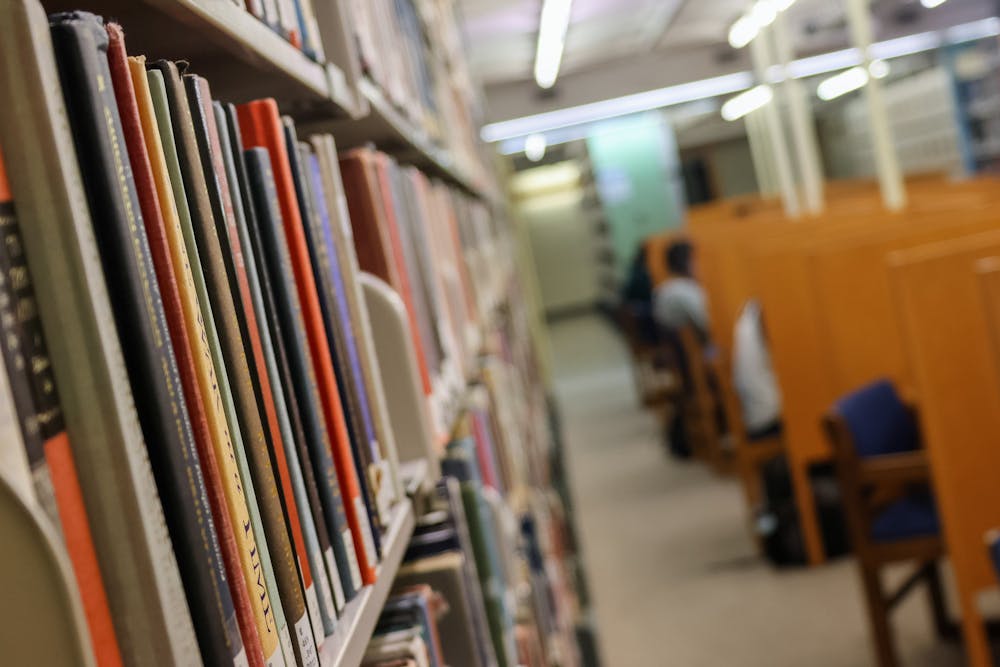Milton S. Eisenhower (MSE) Library is slated for a complete renovation beginning in summer 2024. As the University’s principal research library since 1964, MSE has only had minor updates over the years. The MSE Modernization Project, which will encompass the approximately 182,000-square-foot library, will have an estimated cost of $100 million and is expected to take two and a half years.
Its renovation will impact more than 26,000 students and 7,500 faculty across nine divisions. The project will also generate jobs for the Baltimore community. In particular, the HopkinsLocal program commits to contract to the project at least 20% minority or women-owned business enterprises and 13% local business enterprises.
According to the FAQ section of the project’s website, there are plans for the general public outside of the Hopkins community to have access to the revamped library in an effort to increase interaction between the University and the local community.
Freshman Brandon Chang expressed his concerns with this initiative in an email to The News-Letter.
“It’s the only library that students at the Homewood [Campus] have, and it would be way too crowded if the general public was allowed inside,” he said. “I consider the library as a safe space, and that would be jeopardized if the general public were allowed in.”
The renovated MSE design will meet all modern accessibility requirements as prescribed by the Americans with Disabilities Act of 1990. The project includes building systems upgrades, infrastructure improvements and interior architectural upgrades.
In an interview with The News-Letter, junior Layomi Omole shared her enthusiasm regarding the upcoming MSE improvements.
“I think it’s exciting that they’re renovating the library. I’m glad that they’re making strides to make good improvements on the library and continue to improve our quality of study spaces,” she said. “Having that study space unavailable might be a bit of a short-term detriment.”
In an email to The News-Letter, Sheridan Dean of University Libraries, Archives and Museums Elisabeth Long outlined the options students will have as alternative study spaces during the renovation project.
“The Brody Learning Commons [BLC] will remain open throughout the construction — students will continue to have access to Special Collections, all of [BLC’s] individual and group study spaces, as well as a new service point where students can consult with librarians and use specialized [geographic information systems] and Bloomberg computers,” she wrote. “Another new service point will be set up in the Hodson Hall [reading room] for pickup of reserves, books and materials requested through Catalyst, the [University’s] online catalog.”
Long stated that a group will be exploring additional potential locations to ensure student concerns over the lack of study space are effectively addressed.
Moreover, graduate students who currently have designated study spaces at MSE will be able to use the Hodson Hall board room as a compensatory space for study and dissertation writing. There will be a designated space in the Albert D. Hutzler Reading Room for disciplines that use print reference materials extensively such as Near Eastern Studies, Classics and History of Art.
The renovations will impact the working environment of student library employees, as well.
Junior Stephen Souser, a current student employee at MSE, discussed the changes in an interview with The News-Letter.
“I’m going to have to be working at Hodson [Hall] whenever I have to work and we have to deliver books to different people,” he explained.
To ready the MSE library for renovation, books and materials are being relocated to the Libraries Services Center (LSC), with Hodson Hall being the designate pickup location.
According to Long, the proposed upgrades of the new MSE library include a two-story reading room, better and more varied seating, updated Wi-Fi and power and improved wayfinding service. A modern lighting system will be implemented to change the quality of the lighting to create distinct study zones with different atmospheres, and more natural light will be brought indoors.
In addition to these advancements, there will be programmatic improvements as well. A new space will be built for the Special Collections department along with exhibition cases that will display some of the collections throughout the building. Learning lab spaces will provide specific assistance such as with scholarships, data-intensive research and disciplines that make heavy use of print materials. Graduate students will have access to dissertation writing rooms and dedicated study spaces.
Long stressed that the project will be crucial for improved student experience, especially to better meet evolving student needs.
“With the exception of an update in the 1990s (particularly visible on [M-Level]), [MSE] is pretty much the same building it was when it opened in 1964. 30-year update cycles don’t meet modern needs,” she wrote. “The new [MSE] will be a much more dynamic space that will let us experiment with services and change things [that] aren’t working.”





